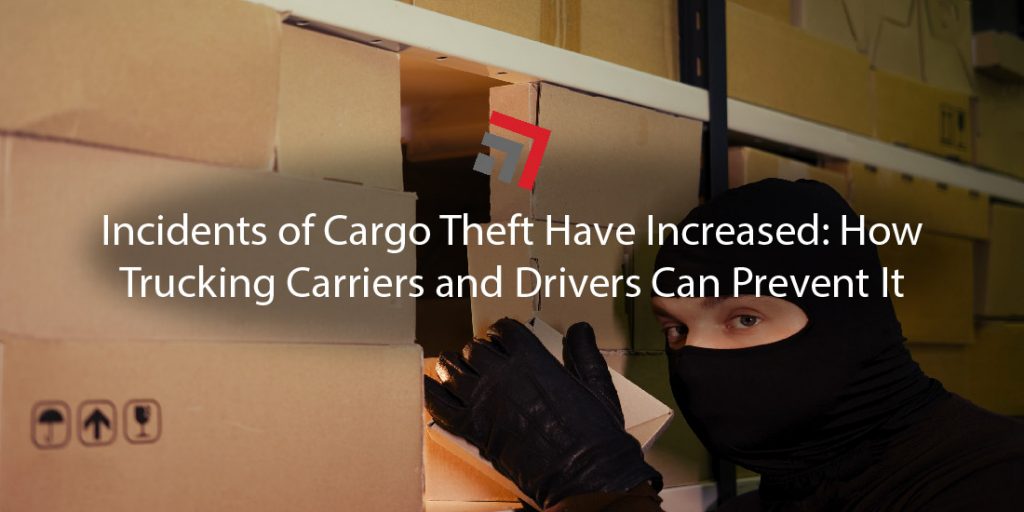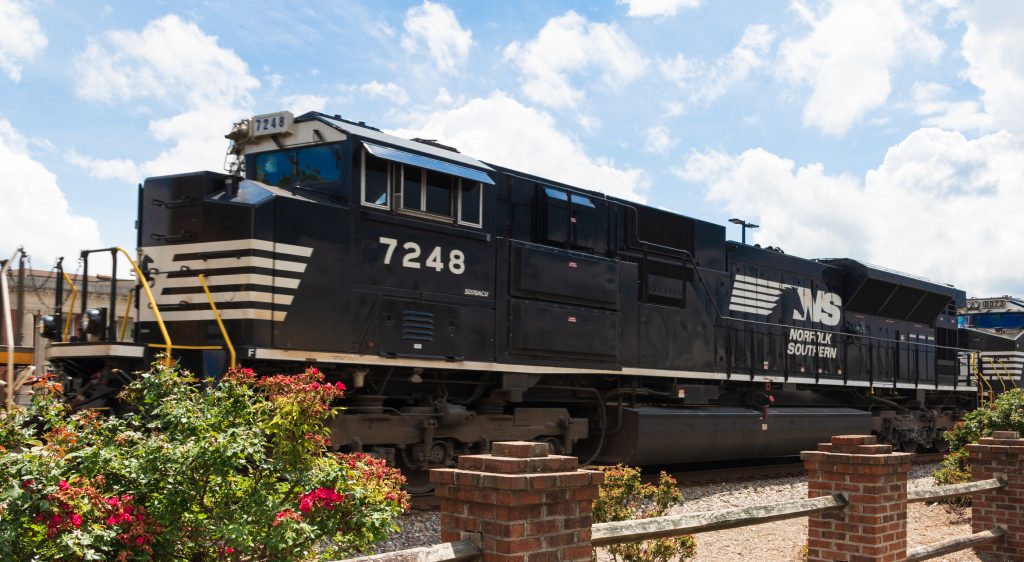
Commerce Express Weekly Road Map: July 12th, 2022
Keeping you informed on the latest news/insights in our industry.
Commerce Express Blog

For many Americans, the six-day stretch between July 1 and July 7 is synonymous with fireworks, time up at the cabin, and burning up PTO.
However, for a select few, this arbitrary grouping of dates represents the peak season of an issue that strikes fear in the heart of carriers and their fleets. As reports will soon show, cargo theft runs rampant around the Fourth of July holiday serving as a grim reminder to the trucking industry to practice due diligence in order to prevent it.

Trucking Update
- After some uncertainty, Canada’s enforcement of their electronic logging device (ELD) mandate WILL begin, as scheduled, on January 1st, 2023 – according to the Canadian Trucking Alliance and reported by Freightwaves. You may remember that this mandate went in effect back in June 2021, with full enrollment to begin on June 12th this year. Then, back in March transportation regulators in Canada agreed to delay the enforcement of until January 2023. However, many were skeptical if that timeframe would stick. The ELD mandate requires electronic data collection of drivers’ hours of service.
- The trucking industry has seen an ‘unseasonably high number’ of trucking employees being added this spring. For-hire carriers, from data by the U.S. Bureau of Labor Statistics shows 20,600 jobs in June were added, following May’s 25,800, reports the Journal of Commerce. Additionally, in the last three months, trucking companies have added 62,400 workers to their payroll, which is a huge increase compared to the 31,400 during the same time period last year, reports show.
- For the month of June, North American Class 8 orders came in at 15,500, which according to data from ACT Research, shows that truck makers are “holding their own” during the ongoing strong demand that has caused backlogs to be pushed out to 7.6 months, Transport Topics reports. To compare, in the previous year orders total 25,824 – ACT Research shows. Demand is still steady, so many experts note that it can be difficult for the industry to meet demand with ongoing challenges in the supply chain.
- After the U.S. Supreme Court’s refusal to consider an appeal that would challenge the California law (California Assembly Bill 5 – read here for more information) that restricts the use of owner-operators, many within the industry wonder to what degree will this have in California. Some carriers have already made the switch and converted their contractors to employees, FleetOwner notes. While some carriers are searching for other options/solutions. Some in the industry worry this ruling could impact drayage, which is the transport of cargo from ocean vessels – since a decent amount of those drivers have traditionally been operated as independent contractors, FleetOwner reports.
- Additionally, 12 California state legislators are asking the Governor to use his executive power to either “take any means within your authority” to delay AB5’s implementation or exempt truckers from the law and its three-part legal test, because of the crucial role truckers play in the supply chain, the Journal of Commerce reports.
Did You Know:
Louisiana is testing out a pilot program that would enable trucks to carry two 20′ containers in tandem to and from the ports
The pilot program began on June 17th, allowing the Department of Transportation and Development to issue special permits through August 1st, 2026 which will allow combination vehicles or tandem loads to haul divisible and non-divisible containers (with imports-exports) to and from ANY Louisiana port facility.
Source: Transport Topics
If you have any questions/comments regarding this, please reach out to our team today!

Rail Update
- The U.S. Chamber of Commerce is asking the President to step in and help resolve a dispute between the U.S. Class 1 railroads and 12 rail unions in an effort to avert a possible rail strike that could begin on July 18th, Freightwaves reports. Last month, the National Mediation Board made a decision to release the railroads and unions from mediation and to begin a 30-day “cooling off” period, Freightwaves reports. However, both parties are able to exercise their “self-help” options – which includes a strike that could begin at 12:01am on July 18th – unless the administration “steps in”. Disagreements over a contract between the railroads and the respective unions started back in January 2020 – wages and health care benefits are two of the main issues.
- The Surface Transportation Board recently asked the Class I railroads to produce a report on an additional raft of metrics on a weekly basis, that needs to include, on-time arrival data for intermodal trains. According to the Journal of Commerce, approximately one out of every four intermodal trains operating in the United States arrived at its destination more than 24 hours behind schedule in the eight weeks ending on June 29th. Additionally, on-time performance was just at 73 percent, which is the lowest recorded in the last two weeks.
- For the week ending on July 2nd, 2022, total U.S. weekly rail traffic was at 500,285 carloads and intermodal units – which is down 2.5 percent compared to the same time last year, the Association of American Railroad reports. Furthermore, grain, farm products (excluding grain, food), and nonmetallic mineral commodities all saw increases compared to the same time last year, the AAR reports. Additionally, Canadian railroads saw carloads for the week up 5.7 percent and intermodal units up nearly 9 percent, both compared to the same time last year. Mexican railroads saw carloads down a little over 13 percent and intermodal units down 4 percent, compared to the same time last year, reports show.
Follow Us on LinkedIn!
If you are enjoying our weekly content, check out our LinkedIn to see our weekly blog posts, updates and more!


Recent Comments